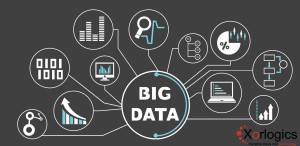The biggest challenges of BigData in 2023
The use of big data is on the rise, with organizations investing heavily in big data analytics and technology to gain insights and improve business performance. With the rapid growth of the internet, social media, and the IoT, the amount of data being generated is increasing exponentially. As a result, there is a need for better tools and techniques to collect, store, analyze, and extract insights from this data.
Additionally, the growth of the global datasphere and the projected increase in the size of the big data market suggest that big data will continue to be a critical driver of innovation and growth across various industries. In a study by Accenture, 79% of executives reported that companies that do not embrace big data will lose their competitive position and could face extinction.
Advancements in big data technologies such as machine learning, artificial intelligence, and natural language processing are also foreseen. These technologies have the goal to enable businesses and organizations to make better decisions, gain a competitive advantage, and improve customer experiences.

Here are a few examples of how big data is being effectively used in various industries:
- Healthcare: Big data is being used to improve patient care, disease diagnosis, and treatment outcomes. For instance, healthcare providers can analyze electronic health records to identify patterns and trends that may help diagnose diseases earlier and predict patient outcomes. Additionally, big data analytics can help hospitals and healthcare organizations optimize their operations, such as reducing wait times and improving patient flow.
- Finance: Big data is being used to identify and prevent fraud, assess risk, and personalize financial products and services. For instance, financial institutions can use big data to analyze customer behavior and preferences, in order to develop personalized marketing campaigns and offers. Additionally, big data analytics can help banks and other financial organizations to detect fraudulent activity and reduce the risk of financial crime.
- Retail: Big data is being used to personalize the shopping experience, optimize inventory management, and improve customer loyalty. For instance, retailers can use big data to analyze customer behavior and preferences, in order to develop targeted marketing campaigns and personalized recommendations. Additionally, big data analytics can help retailers to optimize their inventory levels, reduce waste, and improve supply chain efficiency.
- Manufacturing: Big data is being used to optimize production processes, reduce downtime, and improve quality control. For instance, manufacturers can use big data to monitor equipment performance and predict maintenance needs, in order to reduce downtime and optimize production schedules. Additionally, big data analytics can help manufacturers to identify quality issues early, reducing waste and improving product quality.
- Transportation: Big data is being used to optimize transportation networks, reduce congestion, and improve safety. For instance, transportation companies can use big data to analyze traffic patterns and optimize routes, reducing travel time and congestion. Additionally, big data analytics can help transportation companies to monitor vehicle performance and identify potential safety issues, reducing accidents and improving overall safety.
Generally, big data is being effectively used across a range of industries to drive innovation and create value, improve operational efficiency, reduce costs, and improve customer satisfaction. Along with the benefits of Bigdata, it’s challenges cannot be ignored. Here below are few potential challenges that bigdata may face in the future:
- Data Privacy and Security: As the amount of data collected and stored increases, so does the risk of data breaches and cyber-attacks. Protecting sensitive information will be critical, particularly as more businesses move towards storing their data in the cloud.
- Data Quality: As the volume of data grows, so does the risk of inaccuracies and inconsistencies in the data. Ensuring data quality and accuracy will become increasingly challenging, particularly as the data comes from a wide range of sources.
- Data Management: Managing large amounts of data can be complex and costly. Businesses will need to invest in tools and technologies to help manage and process the data effectively.
- Talent Shortage: The demand for skilled data professionals is growing rapidly, and there may be a shortage of qualified individuals with the necessary skills to analyze and interpret big data.
- Data Integration: With data coming from various sources, integrating, and combining the data can be a challenging process. This could lead to delays in data processing and analysis.
- Ethical Use of Data: As the amount of data collected grows, it becomes increasingly important to ensure that it is used ethically and responsibly. This includes addressing issues related to bias, fairness, and transparency.
- Scalability: As the volume of data continues to grow, businesses will need to ensure that their infrastructure and systems can scale to accommodate the increased data load.
Overall, these challenges could impact the effective use of big data in various industries, including healthcare, finance, retail, and others. Addressing these challenges will require ongoing investment in technologies and skills, as well as a commitment to ethical and responsible use of data.
If you are looking for a partner who can give you both strategic and technical advice on everything to do with the cloud, than contact us so we can talk about your cloud project and evaluate the most suitable solution for your business.
